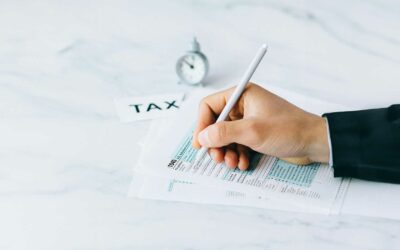Love is in the air – but what about your finances?

With Valentine’s day just gone, and spring not too far away, it is the time of year when many individuals think about becoming couples.
Cohabiting, civil partnership or marriage, there are some financial implications to consider.
You can share your tax breaks
The marriage tax allowance is a way for couples to transfer their personal allowance between them. One of you needs to be a non-taxpayer, earning less than the £11,850 personal allowance in the current tax year. The other needs to be a basic 20% rate taxpayer – higher or additional-rate taxpayers aren’t eligible. This means earning less than £46,350.
The partner who has an unused amount of personal allowance can transfer £1,190 of their allowance to the other.
The maths is little complicated, but for the current tax year, this could mean an extra £238 in your joint income. But it gets better. The marriage tax allowance started on 6 April 2015. If you claim it now and have it backdated, you could be £900 better off. What’s more, once you have claimed, you will continue to receive it automatically.
To apply all you need is your national insurance numbers, and an acceptable form of ID for the non-taxpayer. It only takes a few minutes – just use the application at HMRC. It has to be the non-taxpayer who applies.
This only works for married couples and those in a civil partnership.
You can get more tax relief on savings
Basic-rate taxpayers can earn up to £1,000 savings each year before they pay tax, while higher-rate taxpayers can only earn £500. Put some of your savings in the lower earner’s name, and you can have an extra £500 before the taxman starts to take an interest. Joint accounts mean that interest earned is automatically split 50:50, so you need to watch where you put the cash.
You can get £6,000 towards your first home together
If you are both first-time buyers, you can both save in a Help to Buy ISA. The Government will add 25% towards a mortgage deposit, up to a maximum of £3,000. But if you are buying together, you can get one each and double the Government’s Bonus up to £6,000.
You’re allowed to save £1,200 in month one and £200 each month after. So, you will need to save for nearly 5 years to get the maximum amount.
Potentially boost your home-buying power with a joint mortgage
Taking out a mortgage in just one name means that the other person’s income isn’t included, although the whole household expenditure probably will be. Buying together with your salaries pooled will mean you are potentially eligible for a larger mortgage.
You can save on insurance
If you live in the same home, married or not, you can get joint travel cover. A joint policy can be cheaper than two individual policies. Most joint policies let you travel separately, but always check.
You may also be able to save on car insurance, especially if you only have one car between you. Having one main driver and a spouse as a named driver could mean cutting down the costs considerably.
You can pass on your Inheritance Tax allowance
Everyone can leave an ‘estate’ worth up to £325,000 before inheritance tax is charged. But not only can you leave everything to your spouse without the taxman getting a penny, you can leave your IHT allowance or any unused portion of it too.
But watch out if you are not married. Your partner has no status under law. If you die, they will not get the allowance – and they may not get the house or even custody of the children. You need to make a will to make sure they can keep your home.
If you are starting life together, it’s a good idea to get professional help with your finances. Everything from life insurance to pensions might need to be looked at. Just call us at Continuum for the expert help you need.
The information contained in this article is based on the opinion of Continuum and does not constitute financial advice or a recommendation to suitable investment strategy, you should seek independent financial advice before embarking on any course of action.
The value of pensions and investments can fall as well as rise and you may get back less than you invested.
Your home may be repossessed if you do not keep up repayments on your mortgage.
Estate planning is not regulated by the FCA.
The tax rates referred to are those applying for tax year 2018/19 and maybe subject to future change. Eligibility will be subject to individual circumstances.
Book a free initial consultation
Book an initial consultation with one of our independent financial advisers or call us on 0345 643 0770 if you would like to discuss further.



